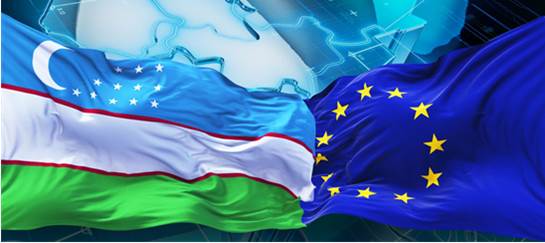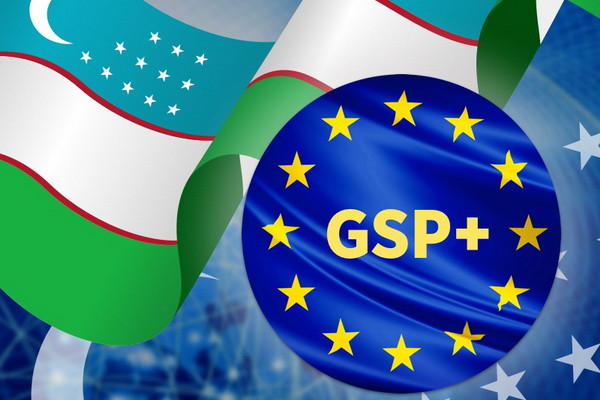The year 2022 marked a new milestone in bilateral and inter-regional relations between Uzbekistan and the EU. Last year, the sides successfully organised a number of high-level events, including a telephone conversation between the President of Uzbekistan, Shavkat Mirziyoyev, and the President of the European Council, Charles Michel, and President Michel's visit to Uzbekistan.
The first visit of the President of the European Council, Charles Michel, to Uzbekistan in 2022, and the fruitful negotiations and significant agreements reached during the President's participation in the first EU-Central Asia meeting in Astana in October, have given impetus to the further development of comprehensive cooperation.
The EU-Central Asia International Conference on Connectivity: The Global Gateway, organised at the initiative of Uzbekistan in Samarkand on 18 November 2022, was a pivotal event in strengthening inter-regional cooperation.
In his address to the participants of the Conference, President of Uzbekistan Shavkat Mirziyoyev emphasised that to strengthen relations between the two important dynamically developing regions and to fully implement the EU Global Gateway Initiative, it is crucial to focus on such priority areas as digital transformation, transport connectivity and green growth projects. The conference resulted in concrete agreements aimed at the practical implementation of cooperation in these key areas.
Key areas of cooperation between Uzbekistan and the EU and its member states include investment, trade, financial and technical assistance, high-tech transfer, science and technology, education, environment, tourism, health and culture, and strengthening regional security.
A major achievement in Uzbek-European bilateral relations has been the parties' successful conclusion of the negotiations on an Enhanced Partnership and Cooperation Agreement (EPCA), which resulted in its initialling on 6 July 2022 in Brussels. The main provisions of the EPCA are fully consistent with the priorities of the New Uzbekistan Development Strategy 2022-2026 adopted in January 2022, including in the areas of human rights, strengthening civil society, ensuring justice, the rule of law etc. The parties are unanimous in the opinion that the signing of the agreement will not only open up new areas of cooperation, but will also create a modern basis for the intensification of mutually beneficial partnership.
Uzbekistan and the EU are actively developing inter-parliamentary ties. In 2023 alone, Uzbekistan received two representative delegations of prominent members of the European Parliament. On 3 April 2023, the regular meeting of the EU-Uzbekistan Parliamentary Cooperation Committee was held in Tashkent. In recent years, trade and economic cooperation have intensified and reached a qualitatively new level.
An important milestone in the economic cooperation between the parties was the granting of Uzbekistan the status of a beneficiary country of the Generalised System of Preferences "GSP+" on 10 April 2021. This contributed to a marked increase in the volume of Uzbek exports to the EU, thanks to the unilateral tariff preferences for Uzbek exports to the European market. The GSP+ status allows Uzbek exporters to supply the European market with more than 6,000 types of goods without customs duties.
In particular, Uzbek exports of high-value-added goods almost doubled in 2022. The number of enterprises with European capital in Uzbekistan has more than doubled.
The parties are also active in the process of Uzbekistan's accession to the World Trade Organisation (WTO). The EU has allocated 5 million euro as technical assistance for Uzbekistan's accession to the WTO.
Uzbekistan and the EU are also interacting within the format of the EU-Central Asia Economic Forum in order to fill the agenda with concrete actions to strengthen trade and economic ties between Uzbekistan and the EU.
A conference was held in Tashkent in March 2022 to launch the new European Union Multiannual Indicative Programme for Uzbekistan 2021-2027. The new indicative programme has an initial allocation of €83 million for 2021-2024, including €76 million for jointly developed projects and technical assistance and budget support programmes, as well as €7 million to support civil society and human rights activities.
In addition, a 5.2 million euro project 'EU Contribution to the Multi-partner Trust Fund on Human Security for the Aral Sea Region' is being implemented in the framework of EU financial and technical assistance.
Cultural and humanitarian ties are also being consistently developed. Over a period of 25 years, more than 80 projects have been implemented jointly with the European Union under the Tempus programme, worth 32.2 million euros, involving 55 higher educational institutions in Uzbekistan and 71 higher educational institutions in EU Member States. The Erasmus+ education programme is implementing 43 projects with a budget of more than 36.6 million euro to improve the capacity of higher education, involving 65 higher education institutions, more than 20 branch offices and organisations in Uzbekistan, and 117 European higher education institutions.
The parties also cooperate actively in the field of human rights and freedoms, democratisation and the development of civil society. For instance, the 4th EU-Central Asia Civil Society Forum was successfully organised in Tashkent on 9-10 March. In April this year, the EU Special Representative for Human Rights, Eamon Gilmore, visited Uzbekistan. During the visit, the parties discussed the progress made in the field of human rights and interests, as well as further steps to expand practical cooperation in this area.
The close, friendly and constructive relations between Uzbekistan and the EU will continue to be steadily strengthened, and the forthcoming dialogue between Uzbek and EU leaders at the second EU-Central Asia regional high-level meeting in Cholpon-Ata on 2 June 2023 will be another important step towards deepening the multifaceted partnership.
Promoted by Uzbekistan Embassy in Brussels



